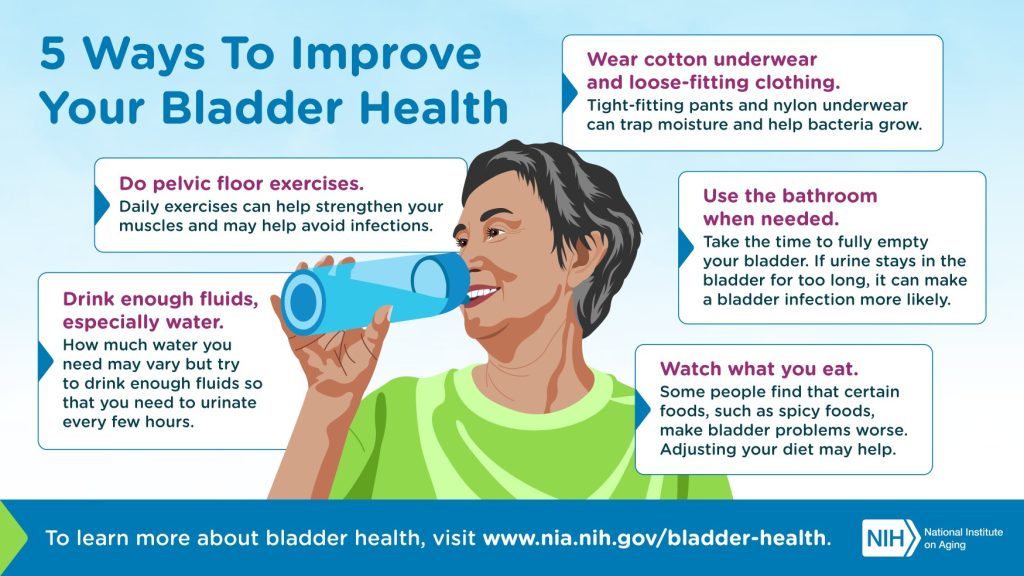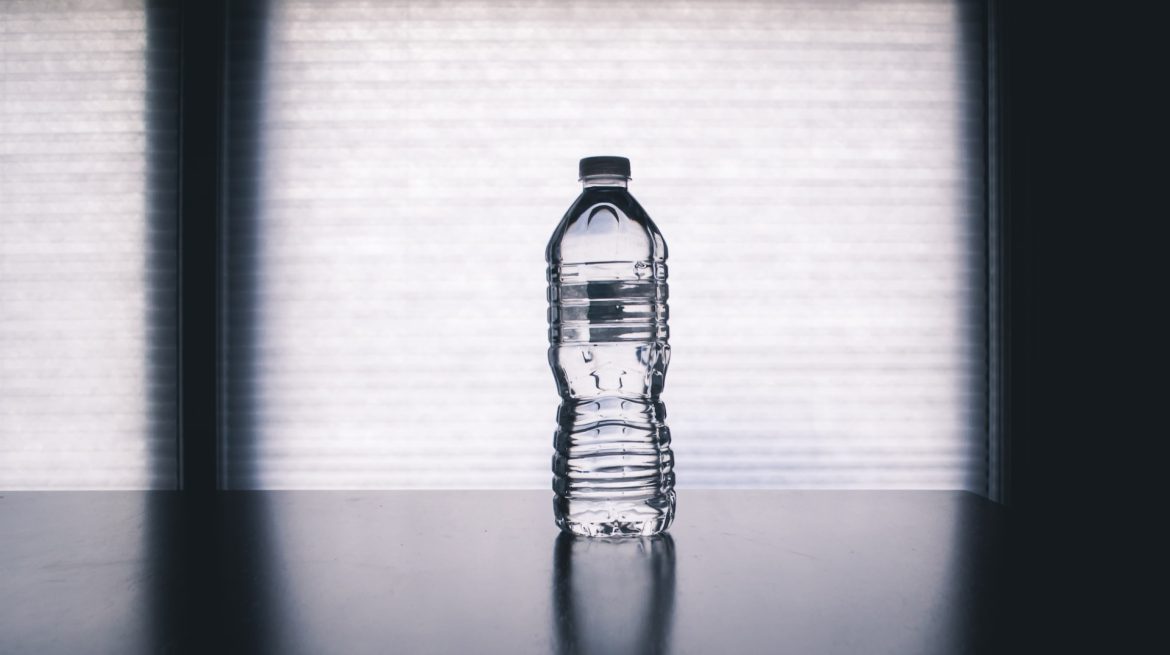As we gracefully age, our bodies embark on a journey of transformation. One remarkable change that often takes center stage is the evolution of our bladder.
Like a resilient character in the story of aging, the bladder undergoes alterations, and understanding these shifts is crucial for maintaining optimal health.
In this guide, we’ll delve into the intricacies of bladder health, drawing insights from the valuable content found at NIA. So, fasten your seatbelts as we navigate through the twists and turns of maintaining a healthy bladder.

Unraveling the Mysteries of Bladder Transformation
Aging gracefully is a beautiful journey, but it comes with its set of transformations, including changes in the bladder. The elastic bladder tissue, a once pliable companion, gradually toughens and loses its stretchiness. Picture it like a well-worn rubber band that’s been through countless stretches—it’s not as elastic as it used to be. Consequently, a less flexible bladder struggles to retain as much urine as before, leading to more frequent visits to the bathroom.
Embracing the Natural Course
Let’s face it; change is the only constant in life. Our bodies are no exception, and the bladder’s evolution is a testament to the inevitability of aging. Rather than resisting these changes, we can empower ourselves by understanding and embracing the natural course of our bodily functions.
Navigating the Nuances of Bladder Health
Understanding the dynamics of bladder health is akin to deciphering a complex code. It requires a nuanced approach and a keen awareness of the subtleties involved. Here, we’ll explore five proven ways to enhance bladder health, each contributing to the overall well-being of this vital organ.
1. Hydration Harmony
Hydration is the cornerstone of good health, and our bladder sings a harmonious tune when we maintain adequate water intake. Imagine it as a gentle stream—when well-nourished, it flows smoothly, preventing the stagnation that can lead to discomfort and potential health issues.
- Drink at least 8 glasses of water a day.
- Opt for water-rich foods like fruits and vegetables.
- Limit caffeine and alcohol intake, as they can be dehydrating.
2. Pelvic Floor Prowess
The pelvic floor muscles are unsung heroes in the saga of bladder health. Like a reliable support system, these muscles play a pivotal role in maintaining bladder control. Think of them as the anchors, ensuring stability in the face of changing tides.
- Engage in pelvic floor exercises regularly.
- Consider consulting a physiotherapist for targeted exercises.
- Practice mindful breathing to enhance pelvic floor awareness.
3. Dietary Delicacies
Our diet serves as a palette of nutrients that directly impacts bladder health. It’s not about deprivation but rather about making conscious choices that nourish our bodies. Picture your diet as a vibrant canvas, each nutrient contributing to the masterpiece of overall health.
- Incorporate fiber-rich foods to support digestive health.
- Be mindful of acidic and spicy foods that can irritate the bladder.
- Maintain a balanced diet with a variety of nutrients.
4. Bathroom Blueprint
Our bathroom habits form a blueprint for bladder health. By adopting strategic practices, we can create a supportive environment that allows our bladder to function optimally. Imagine it as a well-orchestrated dance—each step deliberate and in harmony with the rhythm of our body.
- Don’t postpone bathroom trips; listen to your body’s cues.
- Practice relaxation techniques while in the bathroom to reduce stress.
- Ensure a comfortable and ergonomic bathroom setup.
5. Mindful Management
The mind-body connection is a powerful force, and its influence extends to bladder health. Cultivating mindfulness can positively impact our bladder’s well-being, creating a harmonious interplay between body and mind.
- Practice stress-reducing activities like meditation, pilates and yoga.
- Foster a positive mindset to alleviate mental stress.
- Prioritize self-care to enhance overall well-being.
Social Connection: Sharing the Journey
As we embark on this journey of understanding and nurturing our bladder health, let’s acknowledge the power of community. Share your insights, experiences, and tips with the hashtag #NIAHealth on social media. By connecting with others on a similar path, we create a collective wisdom that transcends individual journeys.
Our bladder’s evolution is a natural and intricate process that deserves our attention and care. By adopting these five proven ways, we not only enhance our bladder health but also embark on a fulfilling journey of overall well-being. Let’s celebrate the changes, embrace the nuances, and empower ourselves to age gracefully with a healthy bladder leading the way.
Frequently Asked Questions
Q1: Can bladder health be improved with age?
Absolutely! While the bladder undergoes natural changes, adopting healthy habits, such as staying hydrated and engaging in pelvic floor exercises, can significantly enhance bladder health as we age.
Q2: How does diet impact bladder health?
Diet plays a crucial role in bladder health. Consuming a balanced diet with fiber-rich foods, while being mindful of irritants like acidic and spicy foods, contributes to a healthier bladder.
Q3: Are pelvic floor exercises necessary for everyone?
Pelvic floor exercises are beneficial for people of all ages. They help maintain bladder control and support overall pelvic health. Consulting a physiotherapist can provide personalized guidance.
Q4: Why is bathroom posture important for bladder health?
Creating a comfortable and ergonomic bathroom setup ensures that the bladder can empty efficiently without unnecessary strain. This, in turn, supports overall bladder health.
Q5: How does mindfulness contribute to bladder health?
Mindfulness practices, such as meditation and yoga, reduce stress and positively impact the mind-body connection. This, in turn, contributes to a healthier bladder and overall well-being.


